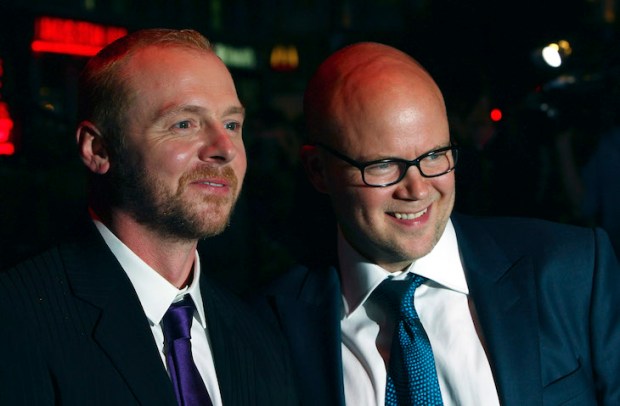By the time you read this I’ll be 50. A couple of years ago, when President Obama passed this milestone, I wrote a piece for the Telegraph about how much I was dreading it. But now it’s finally happening, I can’t think what all the fuss was about. Turns out it’s a bit like being mugged: more terrifying in the imagination than reality.
It’s possible that I’m in denial. According to a study carried out by Warwick University and Dartmouth College, involving more than two million people, turning 50 is a low point. ‘One in five women and one in six men in this country suffer from depression at this time,’ says Dr Andrew McCulloch, the ex-chief executive of the Mental Health Foundation. ‘And the only reason there are fewer men is that men are less likely to admit there’s a problem and seek diagnosis.’
The reason for all this gloom and doom, apparently, is because 50 is the age it finally dawns on you that you’re not going to achieve your dreams. Did you ever entertain -fantasies of living at No. 10? Not very likely when the present incumbent is only 47. A billionaire? Richard Branson started his first business when he was 16. My dream was to be a Hollywood screenwriter, but most of the big hitters in Tinseltown are barely out of short trousers. As Ernest Lehman, the author of The Sweet Smell of Success, once complained: ‘It’s gotten to the point where I can’t shake hands with a studio executive for fear of being arrested for child molestation.’
Still, I haven’t fared too badly. I’ve edited a magazine, written a bestselling book, starred in a one-man show, co-authored a prize-winning play, co-produced a Hollywood movie and set up a school.
In addition, I still have plenty of ambitions left. I’m working on another comic play, this one set in the parliamentary lobby, and the itch to write a novel has returned. Fifty may be too late to embark on a career as a racing driver, but it’s quite a good age to think about becoming a novelist. Tom Wolfe, the American journalist, decided to write a novel at the age of 50. Six years later, he published The Bonfire of the Vanities, one of the high points of late 20th-century American fiction.
Another thing I’m quite excited about is my Unite the Right idea. Since running it up the flagpole in The Spectator a couple of weeks ago, I’ve been contacted by over 250 people, including an ex-MP, a serving member of the House of Lords and numerous local councillors. There seems to be a real appetite among both Ukip-
pers and Conservatives to do whatever it takes to stop Miliband and secure an EU referendum. That impetus will only grow as 2015 approaches, particularly after Ukip tops the poll in the European election next year. Anyone interested in getting involved should email me at conukip@gmail.com.
But the main reason I’m coping so well, I think, is because I’m happily married with four children. According to the boffins, some men get depressed when they hit their half-century because it coincides with their children leaving home. Incredible as it may sound, they feel a sense of loss when their children become financially independent. They’re no longer needed. As husbands and fathers, their job is basically done. Their main role in the family from now on will be to perform grand-parent duties.
Not so in my case. I left it so late to get married and start a family that my four are still quite little. By my calculations, I’ll be 63 by the time my youngest leaves home for university (or a spell in the army) and I’m sure I’ll be ‘needed’ for long after that. Retirement? Chance would be a fine thing.
The other benefit of having lots of children is that you can transfer your ambitions to them. In this way, you can let go of your dreams without having to admit defeat.
‘Looking after children can be a subtle way of giving up,’ says a character in Mother’s Milk, Edward St Aubyn’s midlife novel. ‘They become the whole ones, the well ones, the postponement of happiness, the ones who won’t drink too much, give up, get divorced, become mentally ill. The part of oneself that’s fighting against decay and depression is transferred to guarding them against decay and depression. In the meantime one decays and gets depressed.’
That seems to be working out quite well for me.
Got something to add? Join the discussion and comment below.
Get 10 issues for just $10
Subscribe to The Spectator Australia today for the next 10 magazine issues, plus full online access, for just $10.
Toby Young is associate editor of The Spectator.
You might disagree with half of it, but you’ll enjoy reading all of it. Try your first month for free, then just $2 a week for the remainder of your first year.















Comments
Don't miss out
Join the conversation with other Spectator Australia readers. Subscribe to leave a comment.
SUBSCRIBEAlready a subscriber? Log in